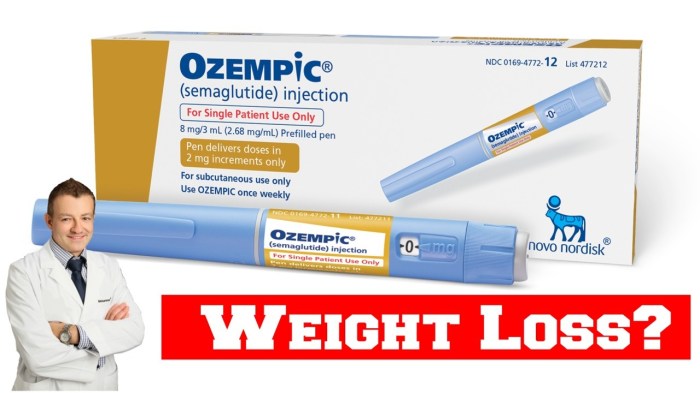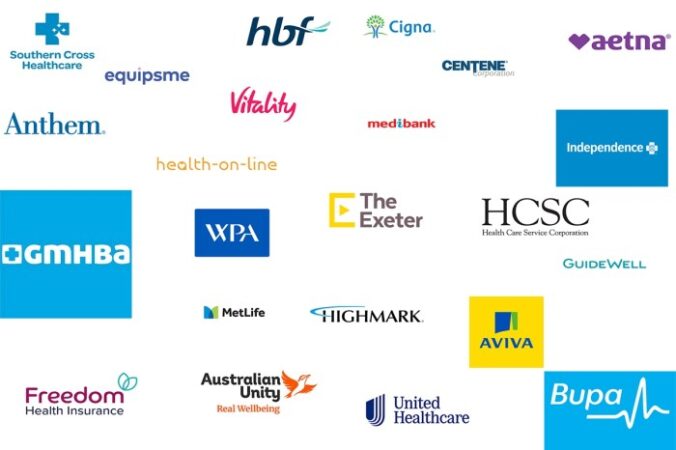
- Navigating the Health Insurance Marketplace
- Understanding Health Insurance Coverage and Benefits
- Employer-Sponsored Health Insurance
- Individual Health Insurance: What Companies Provide Health Insurance
- Government-Sponsored Health Insurance Programs
- Health Insurance Trends and Future Considerations
- Closure
- Common Queries
What companies provide health insurance? This is a question that’s on the minds of millions of Americans, and for good reason! Choosing the right health insurance plan is crucial for protecting yourself and your family from unexpected medical costs. With so many options available, navigating the world of health insurance can feel overwhelming. But fear not, this guide is here to help you understand the different types of health insurance plans, key factors to consider when choosing coverage, and the resources available to help you find the best plan for your needs.
Whether you’re looking for individual or employer-sponsored plans, this guide will equip you with the knowledge you need to make informed decisions about your health insurance. We’ll cover everything from premiums and deductibles to government programs and emerging trends in the industry. So, buckle up and get ready to learn everything you need to know about health insurance in the United States.
Navigating the Health Insurance Marketplace
The Health Insurance Marketplace, also known as Healthcare.gov, is a platform where individuals and families can compare and enroll in health insurance plans. It’s like a giant online shopping mall for health insurance, but instead of shopping for clothes or gadgets, you’re shopping for health coverage.
Eligibility Criteria and Enrollment Periods for Government-Sponsored Programs
Government-sponsored programs like Medicare and Medicaid offer health insurance to specific populations. These programs have eligibility criteria and enrollment periods that you need to be aware of.
Medicare
Medicare is a federal health insurance program for people aged 65 and older, as well as younger individuals with certain disabilities. It’s divided into four parts:
- Part A: Hospital insurance, covers inpatient hospital stays, skilled nursing facility care, hospice care, and some home health services.
- Part B: Medical insurance, covers doctor’s visits, outpatient care, preventive services, and some medical equipment.
- Part C: Medicare Advantage, offered by private insurance companies and combines Part A, Part B, and sometimes Part D benefits.
- Part D: Prescription drug coverage, offered by private insurance companies and covers prescription medications.
Medicaid
Medicaid is a joint federal and state program that provides health insurance to low-income individuals and families. Eligibility requirements vary by state.
- Eligibility criteria: Income level, family size, age, disability status, pregnancy, and citizenship status are factors considered for Medicaid eligibility.
- Enrollment periods: You can usually enroll in Medicaid throughout the year, but there may be specific open enrollment periods in your state. Check with your state’s Medicaid agency for details.
Using a Health Insurance Broker or Agent
A health insurance broker or agent can help you navigate the complex world of health insurance. They can:
- Explain your options: Brokers and agents can help you understand the different types of health insurance plans available and their coverage details.
- Compare plans: They can help you compare plans based on your needs and budget, taking into account factors like premiums, deductibles, copayments, and coverage benefits.
- Enroll in a plan: Brokers and agents can assist you with the enrollment process, ensuring you have the right plan and are properly enrolled.
Benefits of Using a Broker or Agent
- Expertise and knowledge: Brokers and agents have extensive knowledge of the health insurance market and can guide you through the complex process.
- Personalized guidance: They can provide personalized recommendations based on your specific needs and circumstances.
- Time savings: Brokers and agents can handle the paperwork and enrollment process, saving you time and effort.
Limitations of Using a Broker or Agent
- Commission fees: Some brokers and agents may receive commissions from insurance companies, which could influence their recommendations.
- Limited availability: Not all brokers and agents are available in all areas, and some may specialize in specific types of health insurance.
- Potential for conflicts of interest: While most brokers and agents act in their clients’ best interests, there is always a potential for conflicts of interest, especially if they receive commissions from insurance companies.
Understanding Health Insurance Coverage and Benefits
Navigating the health insurance marketplace can feel like trying to decipher a foreign language. But don’t worry, we’re here to break it down and help you understand the basics of what your health insurance covers and how it works.
Types of Medical Services Covered
Knowing what your health insurance covers is crucial to making informed decisions about your healthcare. Most health insurance plans offer coverage for a range of medical services, but the specific services covered can vary depending on the plan. Here’s a rundown of common types of medical services covered by different health insurance plans:
- Preventive Care: This includes routine checkups, screenings, and immunizations. These services are often covered at 100% with no co-pay or deductible.
- Hospitalization: This covers expenses related to inpatient care, including room and board, surgery, and medications. The level of coverage can vary depending on the plan.
- Prescription Drugs: Most health insurance plans cover prescription drugs, but there may be limitations on which drugs are covered and how much you’ll have to pay out-of-pocket.
- Outpatient Care: This covers medical services received outside of a hospital, such as doctor’s visits, lab tests, and physical therapy.
- Mental Health and Substance Abuse Services: Many plans cover mental health and substance abuse services, including therapy, counseling, and medication.
Filing Claims and Seeking Reimbursement, What companies provide health insurance
When you receive medical services, you’ll need to file a claim with your insurance company to get reimbursed for the expenses. Here’s a simplified breakdown of the process:
- Obtain a Claim Form: You can usually find claim forms online or request them from your insurance company.
- Complete the Claim Form: Provide all the necessary information, including your policy number, the date of service, and the medical provider’s details.
- Submit the Claim Form: You can submit the claim form online, by mail, or by fax.
- Receive Payment: Your insurance company will review your claim and process payment. You may receive payment directly or it may be sent to your medical provider.
Common Exclusions and Limitations
While health insurance plans cover a wide range of medical services, there are some common exclusions and limitations. Understanding these limitations is essential for managing your healthcare costs effectively.
| Exclusion/Limitation | Description |
|---|---|
| Pre-existing Conditions | Some plans may have limitations on coverage for pre-existing conditions, such as diabetes or heart disease. |
| Experimental Treatments | Many plans don’t cover experimental treatments that haven’t been approved by the FDA. |
| Cosmetic Procedures | Cosmetic procedures are typically not covered by health insurance plans. |
| Out-of-Network Providers | You may have to pay higher out-of-pocket costs for services received from out-of-network providers. |
| Annual Limits | Some plans may have annual limits on the amount of coverage you can receive. |
Employer-Sponsored Health Insurance
Many Americans obtain health insurance through their employers. This type of coverage is often considered a valuable employee benefit, offering potential advantages and disadvantages. Understanding these aspects can help individuals make informed decisions about their health insurance needs.
Advantages of Employer-Sponsored Health Insurance
Employer-sponsored health insurance offers several advantages, making it a popular choice for many employees.
- Cost-effectiveness: Employer-sponsored plans are often more affordable than individual plans. Employers can negotiate lower premiums with insurance companies due to the larger pool of insured individuals. This can result in significant cost savings for employees, particularly for those who are healthy and don’t require frequent medical care.
- Convenience: Employer-sponsored plans streamline the enrollment process. Employees typically enroll during open enrollment periods, making it easier to choose a plan and avoid the hassle of navigating the individual market.
- Tax Advantages: Premiums paid by employers are typically tax-deductible, while employee contributions to health insurance are often pre-tax. These tax advantages can further reduce the overall cost of coverage.
- Access to a Wide Range of Plans: Employers often offer a variety of plan options, allowing employees to choose a plan that best meets their individual needs and budget.
Disadvantages of Employer-Sponsored Health Insurance
While employer-sponsored health insurance offers advantages, there are also potential disadvantages to consider.
- Limited Choice: Employees are often limited to the plan options offered by their employer. This may not always align with individual needs or preferences.
- Job Security: Coverage through an employer is dependent on employment status. If an employee loses their job, they may lose their health insurance as well, potentially leading to a gap in coverage.
- Potential for Higher Premiums: While employer-sponsored plans can be more affordable than individual plans, they can still be expensive, especially for those with pre-existing conditions or high healthcare utilization.
- Changes in Coverage: Employers can make changes to their health insurance plans, such as increasing premiums or reducing benefits, which can impact employees’ coverage and costs.
Types of Employer-Sponsored Health Insurance Plans
Employers offer a variety of health insurance plans, each with its own structure and cost considerations. Understanding these differences is crucial for making informed decisions about coverage.
- Traditional Plans: These plans typically have lower deductibles and copayments, providing more coverage for routine medical care. However, they often have higher premiums compared to high-deductible plans.
- High-Deductible Health Plans (HDHPs): HDHPs have higher deductibles but lower premiums. They are often coupled with a Health Savings Account (HSA), which allows individuals to save pre-tax dollars for medical expenses. These plans are particularly beneficial for individuals who are healthy and anticipate low healthcare costs.
- Flexible Spending Accounts (FSAs): FSAs allow employees to set aside pre-tax dollars to pay for eligible medical expenses. These accounts can help reduce taxable income and lower out-of-pocket healthcare costs.
Impact of the Affordable Care Act on Employer-Sponsored Health Insurance
The Affordable Care Act (ACA) has significantly impacted employer-sponsored health insurance.
- Essential Health Benefits: The ACA requires most employer-sponsored health plans to cover essential health benefits, such as preventive care, hospitalization, and prescription drugs. This ensures that individuals have access to a comprehensive set of benefits.
- Individual Mandate: The ACA’s individual mandate requires most individuals to have health insurance, either through an employer or through the individual market. This has encouraged employers to offer health insurance to their employees to avoid penalties.
- Subsidies: The ACA provides subsidies to individuals and families who purchase health insurance through the marketplace. These subsidies are also available to individuals who obtain coverage through their employer if their employer’s plan is considered unaffordable.
Individual Health Insurance: What Companies Provide Health Insurance

Navigating the world of individual health insurance can feel like trying to decipher a complex puzzle. But don’t worry, we’re here to help you break it down! Purchasing an individual health insurance plan directly from an insurance company gives you control over your health care choices. It’s a great option for those who aren’t covered by employer-sponsored plans or for individuals who want more flexibility and personalized coverage.
The Process of Purchasing Individual Health Insurance Plans
Buying an individual health insurance plan directly from an insurance company might seem daunting, but it’s a fairly straightforward process. Here’s a breakdown:
- Gather Information: Before you start shopping, it’s crucial to gather information about your health, your budget, and your coverage needs. Consider factors like pre-existing conditions, expected medical expenses, and the types of services you require.
- Compare Plans: The health insurance marketplace is bustling with various plans offered by different companies. Take your time to compare options based on coverage, cost, and network availability. Remember, the best plan for you will depend on your individual needs and circumstances.
- Apply and Enroll: Once you’ve chosen a plan, you’ll need to apply and enroll. This usually involves providing personal information, medical history, and financial details. The enrollment period for individual health insurance plans can vary, so it’s essential to check the deadlines.
- Pay Premiums: After enrollment, you’ll be required to pay monthly premiums to maintain your coverage. The premium amount will depend on the plan you choose and your individual factors, such as age and health status.
Factors to Consider When Comparing Individual Plans
When comparing individual health insurance plans, several factors play a crucial role in determining the best fit for you.
- Coverage: Different plans offer varying levels of coverage, from basic essential health benefits to comprehensive plans that include a wider range of services. It’s crucial to understand the coverage details, including deductibles, copayments, and out-of-pocket maximums.
- Cost: The cost of individual health insurance plans can vary significantly depending on factors like age, location, health status, and plan type. Consider the monthly premium, deductible, and out-of-pocket expenses when comparing plans.
- Network Availability: Network availability refers to the doctors, hospitals, and other healthcare providers included in your plan. It’s important to ensure that your preferred healthcare providers are in the plan’s network to avoid higher out-of-pocket costs.
Potential Tax Benefits and Credits
Purchasing individual health insurance can sometimes come with tax benefits and credits that can help offset the cost. The availability and amount of these benefits depend on your income, the plan you choose, and other factors.
- Premium Tax Credit: The Premium Tax Credit is a tax credit available to individuals and families who purchase health insurance through the Health Insurance Marketplace. The credit amount is based on your income and the cost of the plan. You can claim the credit when you file your federal income taxes.
- Deductible Medical Expenses: You may be able to deduct medical expenses, including health insurance premiums, if they exceed a certain percentage of your adjusted gross income. This deduction can help reduce your taxable income and lower your tax liability.
Government-Sponsored Health Insurance Programs

The United States government offers various health insurance programs to provide coverage to different segments of the population. These programs are designed to ensure access to essential healthcare services, particularly for individuals and families who might struggle to afford private insurance.
Medicare
Medicare is a federal health insurance program primarily for individuals aged 65 and older, as well as younger people with certain disabilities. It is a vital program that helps millions of Americans access healthcare.
Here are some key aspects of Medicare:
- Eligibility Requirements: To be eligible for Medicare, you must be a U.S. citizen or lawful permanent resident and meet one of the following criteria:
- You are 65 years old or older.
- You have been receiving Social Security disability benefits for at least 24 months.
- You have end-stage renal disease (permanent kidney failure).
- You have amyotrophic lateral sclerosis (ALS, also known as Lou Gehrig’s disease).
- Benefits: Medicare offers various coverage options, including:
- Part A (Hospital Insurance): Covers inpatient hospital stays, skilled nursing facility care, hospice care, and some home health services.
- Part B (Medical Insurance): Covers doctor visits, outpatient care, preventive services, and some medical supplies.
- Part C (Medicare Advantage): Offered by private insurance companies, Medicare Advantage plans provide an alternative to Original Medicare (Parts A and B). They typically offer additional benefits, such as vision, dental, and hearing coverage, but may have limitations on providers and services.
- Part D (Prescription Drug Coverage): Covers prescription drugs through private insurance companies that contract with Medicare.
- Enrollment Procedures: You can enroll in Medicare during your Initial Enrollment Period (IEP), which starts three months before your 65th birthday and ends three months after your birthday. You can also enroll during special enrollment periods if you meet certain criteria.
Medicaid
Medicaid is a federal-state partnership program that provides health coverage to low-income individuals and families, children, pregnant women, people with disabilities, and elderly adults. Medicaid is crucial in providing access to healthcare for vulnerable populations.
Here’s a breakdown of Medicaid:
- Eligibility Requirements: Medicaid eligibility varies from state to state. Generally, individuals must meet income and asset requirements, and they may be eligible based on their age, pregnancy status, disability, or family size.
- Benefits: Medicaid covers a wide range of healthcare services, including:
- Hospital and outpatient care
- Doctor visits
- Prescription drugs
- Mental health and substance use disorder treatment
- Dental care
- Vision care
- Enrollment Procedures: You can apply for Medicaid through your state’s Medicaid agency. The application process may vary by state.
Children’s Health Insurance Program (CHIP)
CHIP is a state-administered program that provides health insurance to children in families who earn too much to qualify for Medicaid but cannot afford private health insurance. CHIP is vital in ensuring that children have access to essential healthcare services.
Here are some key points about CHIP:
- Eligibility Requirements: CHIP eligibility varies by state, but generally, children must be under 19 years old and meet income requirements.
- Benefits: CHIP covers a wide range of healthcare services, including:
- Doctor visits
- Hospital care
- Prescription drugs
- Dental care
- Vision care
- Enrollment Procedures: You can apply for CHIP through your state’s CHIP agency. The application process may vary by state.
Tricare
Tricare is a health insurance program for active-duty military personnel, retirees, and their families. It provides access to healthcare services at military hospitals and clinics, as well as through private providers.
Here are some key aspects of Tricare:
- Eligibility Requirements: To be eligible for Tricare, you must be an active-duty service member, a retired service member, a dependent of an active-duty or retired service member, or a survivor of a service member who died in the line of duty.
- Benefits: Tricare offers various coverage options, including:
- Tricare Prime: Offers comprehensive coverage through military hospitals and clinics, as well as through private providers.
- Tricare Select: Provides coverage through private providers, with a copayment for each service.
- Tricare for Life: Offers supplemental coverage for retirees and their families who are eligible for Medicare.
- Enrollment Procedures: You can enroll in Tricare through the Department of Defense.
The Affordable Care Act (ACA)
The Affordable Care Act (ACA), also known as Obamacare, has significantly impacted access to health insurance in the United States. The ACA has expanded access to health insurance for low-income individuals and families, implemented new consumer protections, and made significant changes to the health insurance market.
Here are some key provisions of the ACA:
- Expansion of Medicaid: The ACA allowed states to expand Medicaid eligibility to include individuals with incomes up to 138% of the federal poverty level. This expansion has provided health insurance to millions of low-income Americans.
- Marketplace: The ACA created the Health Insurance Marketplace, a platform where individuals and families can shop for and purchase health insurance plans. The Marketplace offers subsidies to help people afford coverage, based on their income.
- Essential Health Benefits: The ACA requires all health insurance plans to cover a set of essential health benefits, including:
- Ambulatory patient services
- Emergency services
- Hospitalization
- Maternity and newborn care
- Mental health and substance use disorder services
- Prescription drugs
- Rehabilitative and habilitative services and devices
- Preventive and wellness services
- Individual Mandate: The ACA required most Americans to have health insurance or pay a penalty. This provision was repealed in 2017, but the individual mandate penalty was reduced to $0 in 2019.
Health Insurance Trends and Future Considerations

The health insurance landscape is constantly evolving, driven by technological advancements, changing consumer preferences, and a focus on improving healthcare outcomes. This section explores key trends shaping the future of health insurance, analyzing their impact on costs, coverage, and the overall healthcare system.
Telehealth’s Growing Impact
Telehealth, the delivery of healthcare services remotely using technology, has gained immense popularity in recent years. This trend is expected to continue, driven by factors like convenience, affordability, and increased access to specialized care. The adoption of telehealth has led to:
- Reduced healthcare costs: Telehealth consultations often cost less than in-person visits, particularly for routine checkups and follow-ups.
- Improved access to care: Telehealth removes geographical barriers, allowing individuals in remote areas or with limited mobility to access healthcare services easily.
- Enhanced patient engagement: Telehealth platforms offer tools for patients to manage their health proactively, such as virtual appointments, medication reminders, and health trackers.
The growing adoption of telehealth is transforming the health insurance industry. Insurance companies are increasingly incorporating telehealth services into their plans, offering coverage for virtual consultations and remote monitoring.
Personalized Medicine and its Implications
Personalized medicine, which tailors healthcare treatments to individual patients based on their unique genetic makeup and lifestyle factors, is revolutionizing healthcare. This approach has the potential to:
- Improve treatment effectiveness: Personalized medicine allows for more targeted therapies, leading to better outcomes and fewer side effects.
- Reduce healthcare costs: By identifying patients at higher risk for specific diseases, personalized medicine can enable early interventions and preventative measures, potentially reducing the need for costly treatments later on.
- Enhance patient satisfaction: Personalized medicine empowers patients by providing them with greater control over their healthcare decisions.
Personalized medicine presents significant challenges for the health insurance industry. Insurance companies are exploring ways to incorporate genetic testing and other personalized medicine tools into their coverage plans while managing the associated costs.
Value-Based Care: A Shift in Focus
Value-based care (VBC) is a healthcare delivery model that emphasizes quality of care over quantity. In VBC, providers are incentivized to deliver high-quality care at lower costs, with a focus on patient outcomes. Key elements of VBC include:
- Population health management: VBC programs focus on managing the health of entire populations, rather than treating individual patients.
- Care coordination: VBC encourages collaboration among healthcare providers to ensure patients receive seamless care.
- Data-driven decision-making: VBC relies heavily on data analytics to identify trends, measure outcomes, and improve care delivery.
VBC is reshaping the health insurance industry by creating incentives for providers to improve patient outcomes and reduce costs. Insurance companies are developing VBC programs and partnering with providers to promote this model.
The Future of Health Insurance: Embracing Technology
Technology is playing an increasingly important role in the future of health insurance. Trends like artificial intelligence (AI), blockchain, and big data are expected to:
- Personalize insurance plans: AI can analyze individual health data to create customized insurance plans that meet specific needs and risk profiles.
- Improve claims processing: Blockchain technology can streamline claims processing, reducing fraud and increasing transparency.
- Enable proactive health management: Big data analytics can identify potential health risks and provide personalized recommendations for preventive care.
The future of health insurance will be shaped by technological advancements that enhance efficiency, personalization, and patient engagement.
Closure
Choosing the right health insurance plan is a big decision, but with the right information and resources, you can find a plan that meets your individual needs and budget. By understanding the different types of plans, key factors to consider, and the resources available to help you navigate the process, you can confidently choose the health insurance coverage that provides you with peace of mind and financial protection.
Common Queries
What is the difference between an HMO and a PPO?
An HMO (Health Maintenance Organization) typically has lower premiums but requires you to choose a primary care physician within the network. You’ll need referrals to see specialists. A PPO (Preferred Provider Organization) offers more flexibility, allowing you to see doctors outside the network, but premiums are usually higher.
How do I know if I’m eligible for Medicare or Medicaid?
Eligibility for Medicare is based on age (65 or older) or disability. Medicaid eligibility is based on income and other factors, and it varies by state. You can apply for both programs through the official government websites.
What are the benefits of using a health insurance broker?
Health insurance brokers can help you compare different plans from multiple insurance companies, saving you time and effort. They can also provide expert advice and guidance throughout the enrollment process.



